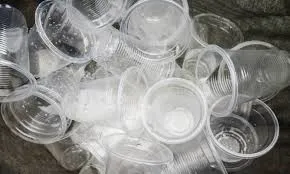IIT Develops Biodegradable Plastic
Researchers at the Indian Institute of Technology (IIT) Delhi have developed a revolutionary biodegradable plastic that could dramatically reduce environmental pollution. The new material, derived from agricultural waste and microbial fermentation, decomposes within 60 to 90 days under natural conditions. Unlike traditional plastics, which can persist for hundreds of years, this new plastic leaves behind no toxic residue. The team, led by Dr. Ananya Mehra from the Department of Chemical Engineering, focused on using starch based polymers combined with bacterial cellulose. The resulting product can be used in packaging, cutlery, and even medical applications. With India struggling with plastic waste management producing nearly 3.5 million tonnes annually this innovation is timely and potentially game changing. The plastic has passed industrial strength and heat resistance tests, making it a viable alternative for commercial use. IIT Delhi is currently in talks with manufacturing partners to scale up production, and the government is reportedly considering incentives for industries that adopt such eco friendly materials. The project received funding under the “Waste to Wealth” initiative, and field trials have shown promising results. The biodegradable plastic is also expected to be cost competitive once mass production begins. Scientists emphasize the need for public awareness and infrastructure support to promote adoption at scale. This innovation not only addresses the growing environmental concern around plastic pollution but also creates a circular economy model by using agricultural waste, which otherwise goes unused or is burnt.



 China offers to mediate border dispute between Thailand and Cambodia via peaceful dialogue
China offers to mediate border dispute between Thailand and Cambodia via peaceful dialogue  U.S. tariffs favour Asia?
U.S. tariffs favour Asia?  Back‑to‑school spending in U.S. likely to drop amid economic uncertainty and tariffs
Back‑to‑school spending in U.S. likely to drop amid economic uncertainty and tariffs  Russia‑US relations remain positive despite U.S. zigzag over policy
Russia‑US relations remain positive despite U.S. zigzag over policy  Scorching Heat Breaks Temperature Records in Western India
Scorching Heat Breaks Temperature Records in Western India